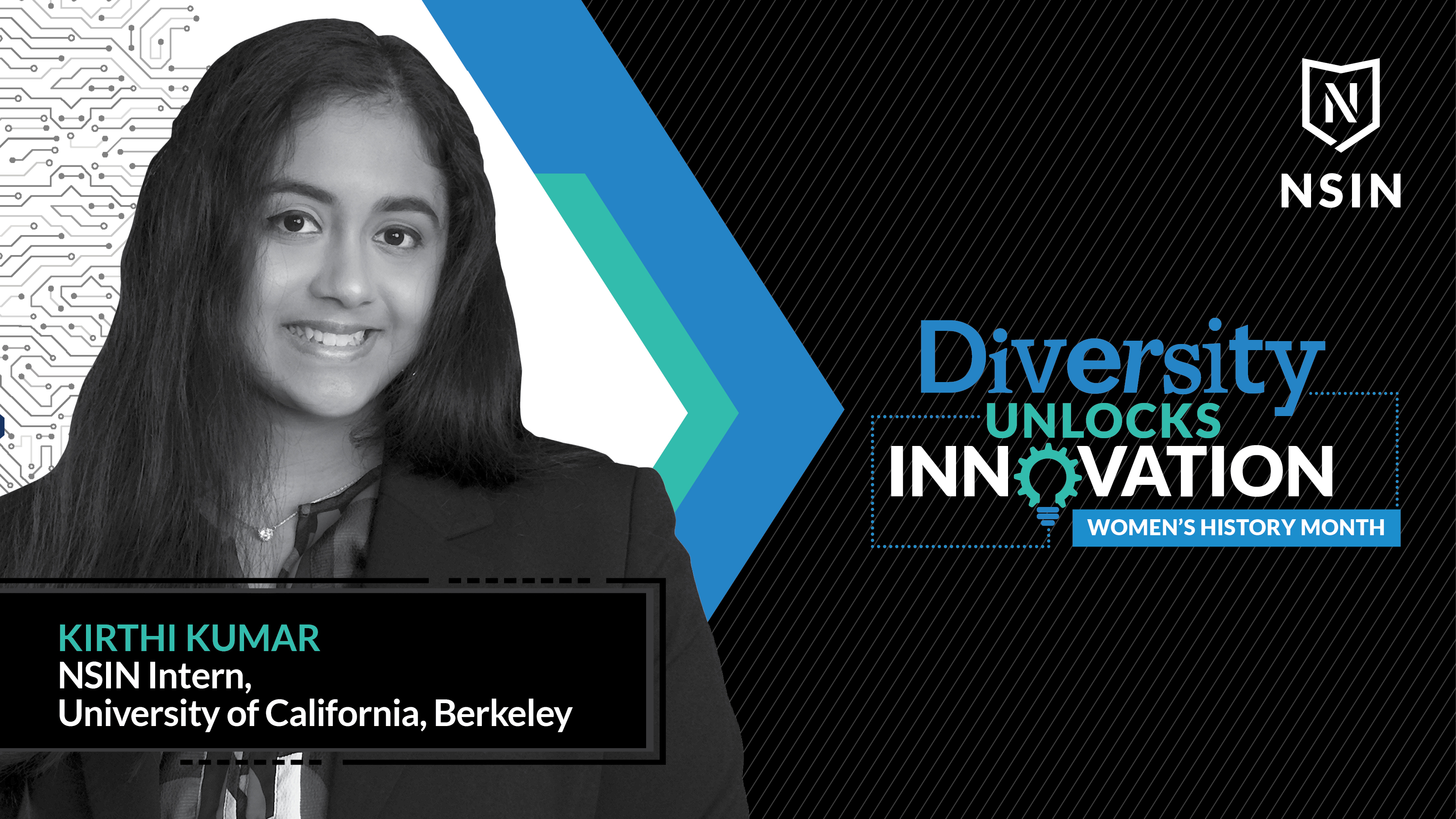
Kirthi Kumar - Emerging Leader


NAME: Kirthi Kumar
NSIN AFFILIATION: Intern for Kaitie Penry, UC Berkeley NSIN University Program Director
AFFILIATION: Sophomore, University of California, Berkeley majoring in Electrical Engineering and Computer Science, and Business Administration
STATE: Virginia
Q: What inspired you to explore the national security community? Do you have a connection to the Military/Government Service?
I have been highly involved in the technology sector for a while, but I recently became connected with the national security community after working on the first set of technology-oriented non-partisan transition memos for the 2020-21 Presidential Transition. I supported work on memos regarding a few agencies including DoD, DHS, Treasury, Education, and OSTP. After that work, I joined NSIN as a strategy intern for Kaitie Penry, the UC Berkeley University Program Director, where I help connect students to opportunities in national security. I'm currently a second year undergraduate studying EECS (Electrical Engineering and Computer Science) and Business Administration, minoring in public policy. My goal is to use my unique perspectives and knowledge of technology, entrepreneurship, and policy to make an impact on the intersection of national security and tech policy.
Q: As a woman, how is the national security community different for you?
Women are underrepresented in all three of the areas I am studying: technology, entrepreneurship, and national security policy. Being a student in all three areas, I've experienced first-hand the impacts of the lack of women in leadership in these areas. I'm highly involved in the Society of Women Engineers, and in the engineering world, we often talk about the importance of mentorship. I am thankful to have found a mentor in the national security space like Kaitie who is highly supportive of my ideas for expanding NSIN's reach on campus, and am also grateful to my mentors in entrepreneurship and technology, as well. As I rise to leadership positions in the intersection of these fields, I hope to uplift and mentor other women around me.
Q: Do you remember a moment when you saw a difference for women in the professional world? What do you remember? How did it impact your work?
Rather than answering this question as it is, I would want to flip the question around and ask, "What additional difference can gender parity make in national security, technology, and entrepreneurship?" This semester I am piloting a course that I designed at UC Berkeley called "Innovations in National Security and Tech Policy" in which a significant part of the course is focused on group project work. This includes six exciting technology and policy problem sets from sponsors. Most of the groups are gender-balanced, and there have been so many creative outputs from these students, including work ranging from social media policy to cryptocurrency to autonomous robotics innovations. Although technology, entrepreneurship, and national security may currently have lower percentages of women, through mentorship and inclusivity we can bridge the gap and have heightened innovation in these fields.